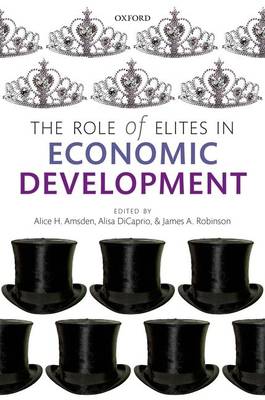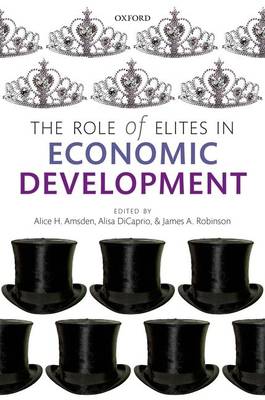
- Afhalen na 1 uur in een winkel met voorraad
- Gratis thuislevering in België vanaf € 30
- Ruim aanbod met 7 miljoen producten
- Afhalen na 1 uur in een winkel met voorraad
- Gratis thuislevering in België vanaf € 30
- Ruim aanbod met 7 miljoen producten
Zoeken
The Role of Elites in Economic Development
€ 59,45
+ 118 punten
Omschrijving
Elites have a disproportionate impact on development outcomes. While a country's endowments constitute the deep determinates of growth, the trajectory they follow is shaped by the actions of elites. But what factors affect whether elites use their influence for individual gain or national welfare? To what extent do they see poverty as a problem? And are their actions today constrained by institutions and norms established in the past? This volume looks at case studies from South Africa to China to seek a better understanding of the dynamics behind how elites decide to engage with economic development. Approaches include economic modelling, social surveys, theoretical analysis, and program evaluation. These different methods explore the relationship between elites and development outcomes from five angles: the participation and reaction of elites to institutional creation and change, how economic changes affect elite formation and circulation, elite perceptions of national
welfare, the extent to which state capacity is part of elite self-identity, and how elites interact with non-elites.
welfare, the extent to which state capacity is part of elite self-identity, and how elites interact with non-elites.
Specificaties
Betrokkenen
- Uitgeverij:
Inhoud
- Aantal bladzijden:
- 398
- Taal:
- Engels
- Reeks:
Eigenschappen
- Productcode (EAN):
- 9780198716433
- Verschijningsdatum:
- 6/01/2015
- Uitvoering:
- Paperback
- Formaat:
- Trade paperback (VS)
- Afmetingen:
- 231 mm x 155 mm
- Gewicht:
- 598 g

Alleen bij Standaard Boekhandel
+ 118 punten op je klantenkaart van Standaard Boekhandel
Beoordelingen
We publiceren alleen reviews die voldoen aan de voorwaarden voor reviews. Bekijk onze voorwaarden voor reviews.










